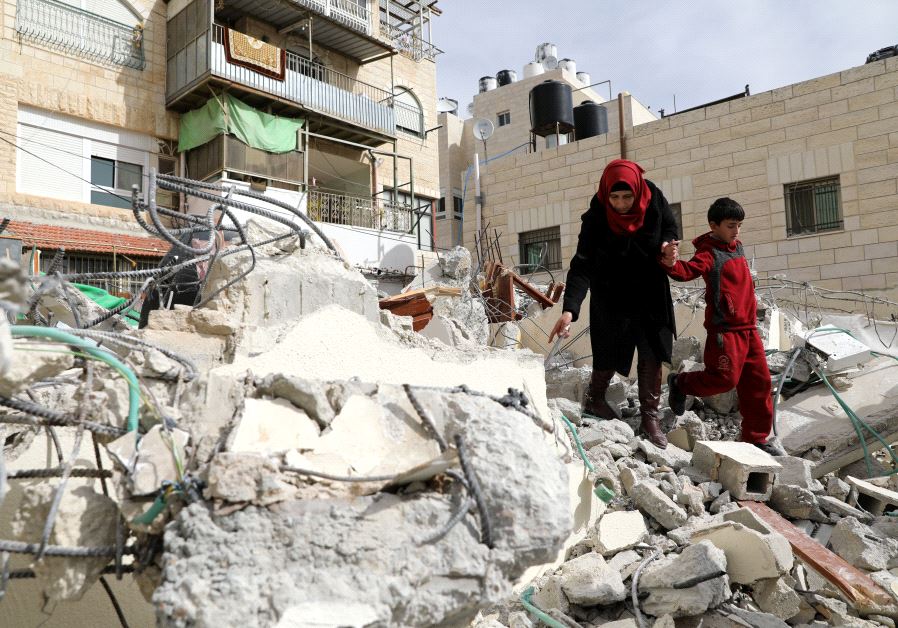Left-wing NGOs dispute Jerusalem Municipality’s claims of equitable building permits
Ir Amim: "Israel greatly limits the possibility of Palestinians to address their housing needs legally'"
 Rubble from a house which was demolished in Jerusalem as they did not have a building permitUpdated:
Rubble from a house which was demolished in Jerusalem as they did not have a building permitUpdated: